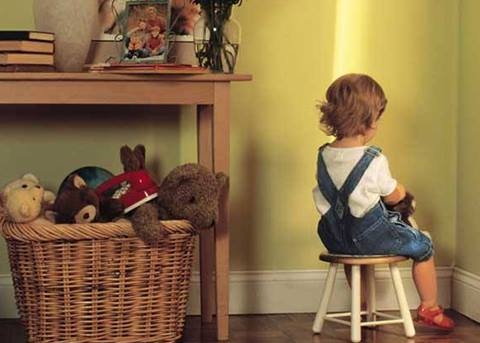Things You Shouldn't Say to Your Child
07/12/2016
-O'HANA
-0 Bình luận
Learn what phrases to banish from your vocabulary and how to talk so your kids will really listen. These are some really important ideas to consider so we've devoted two newsletters to their contents. Stay tuned and we'll catch up next week.
We all say the wrong thing sometimes, leaving our kids feeling hurt, angry or confused. Read on for some of the most common verbal missteps moms and dads make, and kinder, gentler alternatives.
"Leave Me Alone!"
Parents all need an occasional break. Trouble is, when you routinely tell your kids, "Don't bother me" or "I'm busy", they internalize that message. They begin to think there's no point in talking to you because you're always brushing them off. If you set up that pattern when your children are small, then they may be less likely to tell you things as they get older.
At those times when you're preoccupied (or overstressed), set up some parameters in advance. I might have said, "Mom has to finish this one thing, so I need you to play quietly for a few minutes. When I'm done, we'll go outside." Just be realistic. A toddler and a preschooler aren't likely to amuse themselves for a whole hour.

You're So..."
Labels are shortcuts that shortchange kids: "Why are you so naughty?" Sometimes kids overhear us talking to others: "She's my shy one."
Young children believe what they hear without question, even when it's about themselves. So negative labels can become a self-fulfilling prophecy. Even labels that seem neutral or positive—"shy" or "smart"—pigeonhole a child and place unnecessary or inappropriate expectations on her.
The worst ones cut dangerously deep. Many a parent can still vividly, and bitterly, remember when her/his own parent said something like "You're so hopeless" (or "lazy" or "stupid").
A far better approach is to address the specific behavior and leave the adjectives about your child's personality out of it. For example, "An's feelings were hurt when you told everyone not to play with her. How can we make her feel better?"
“Don't Cry". Variations: "Don't be sad." "Don't be a baby." "Now, now—there's no reason to be afraid."
Kids do get upset enough to cry, especially toddlers, who can't always articulate their feelings with words. They do get sad. They do get frightened. But saying 'Don't be' doesn't make a child feel better, and it also can send the message that his emotions aren't valid—that it's not okay to be sad or scared.
Rather than deny that your child feels a particular way—when he obviously does—acknowledge the emotion up front. By naming the real feelings that your child has, you'll give him the words to express himself—and you'll show him what it means to be empathetic. Ultimately, he'll cry less and describe his emotions instead.
"Why Can't You Be More Like Your Sister?"
It might seem helpful to hold out a sibling or friend as a shining example. But comparisons almost always backfire. Your child is herself, not any other child. It's natural for parents to compare their kids, to look for a frame of reference about their milestones or their behavior, say experts. But don't let your child hear you doing it. Kids develop at their own pace and have their own temperament and personality. Comparing your child to someone else implies that you wish yours were different. Nor does making comparisons help change behavior. Being pressured to do something she's not ready for (or doesn't like to do) can be confusing to a little kid and can undermine her self-confidence. She's also likely to resent you and resolve not to do what you want, in a test of wills.

"Great Job!" or "Good Girl/Boy!"
What could possibly be wrong with praise? Positive reinforcement, after all, is one of the most effective tools a parent has. The trouble comes in when the praise is vague and indiscriminate. Tossing out "Great job!" for every little thing your child does - from finishing his milk to drawing a picture - becomes meaningless. Kids tune it out. They can also tell the difference between praise for doing something rote or simple and praise for a real effort.
To get out of the habit of such effusiveness:
- Praise only those accomplishments that require real effort. Finishing a glass of milk doesn't cut it. Neither does drawing a picture, if your child is the kind who makes dozens of them every day.
- Be specific. Praise the behavior rather than the child: Instead of "Beautiful job," say, "What bright, happy colors you picked for the dog's spots. Or "You were so quiet with your puzzle while I was finishing that paperwork, just like I asked."
"Stop Or I'll Give You Something to Cry About!"
Threats, usually the result of parental frustration, are rarely effective. We sputter warnings like "Do this or else!" or "If you do that one more time, I'll spank you!" The problem is that sooner or later you have to make good on the threat or else it loses its power. Threats of hitting have been found to lead to more spanking—which itself has been proven to be an ineffective way to change behavior.
The younger a child is, the longer it takes for a lesson to sink in. Studies have shown that the odds of a two-year-old's repeating a misdeed later in the same day are eighty percent no matter what sort of discipline you use.
Even with older kids, no discipline strategy yields surefire results right off the bat every time. So it's more effective to develop a repertoire of constructive tactics, such as redirection, removing the child from the situation, or time-outs, than it is to rely on those with proven negative consequences, including verbal threats and spanking.











